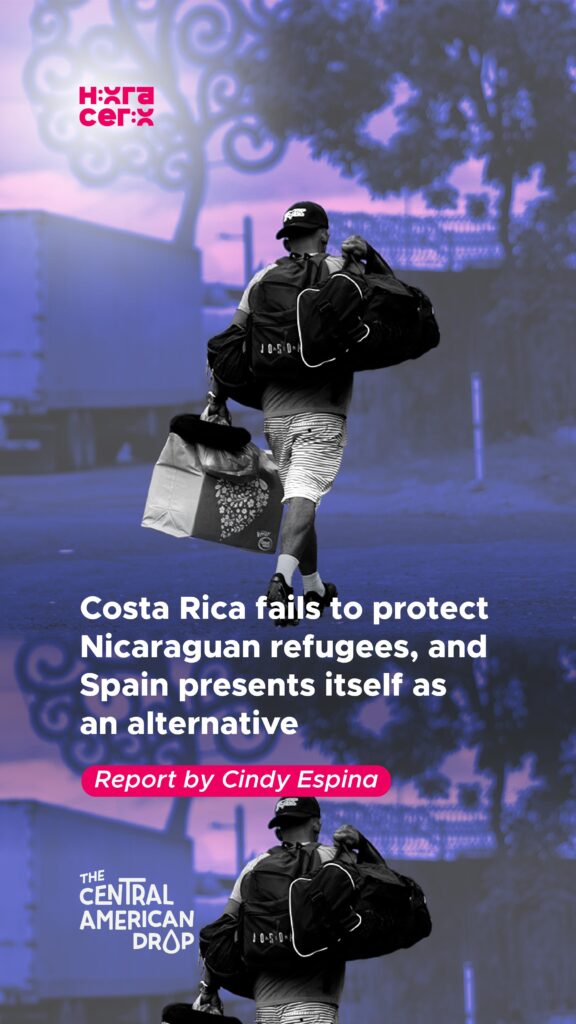
Costa Rica fails to protect Nicaraguan refugees, and Spain presents itself as an alternative
Maldito País
noviembre 18, 2025
The United Nations Refugee Agency (UNHCR) announced in late October that 51 Nicaraguan nationals would be starting a new life in Spain. The UN agency described this as «good news,» accompanied by a photo of the families walking through the airport.
The 51 people are part of a group of activists and human rights defenders who lived in Costa Rica, and their departure can be understood in light of the UN warning about the intensification of repression by the Daniel Ortega and Rosario Murillo dictatorship in Nicaragua and its effects in other territories to try to silence its critics in exile. The UN warning comes after the transnational murder of Nicaraguan activist Roberto Samcam, who was living in exile in Costa Rica and was killed outside his home in San José on June 19, 2025.
Melissa, a Nicaraguan refugee in Costa Rica, told Hora Cero that activists and human rights defenders no longer feel very safe in Costa Rica after what happened to Roberto Samcam. She added that the immigration regularization process in Costa Rica takes many years, and during that time, people face significant job and economic instability, which is very worrying, Melissa points out, since the cost of living in Costa Rica is very high, and access to free healthcare is limited for Nicaraguans.

According to the media outlet Confidencial, as of September 2025, 173,559 asylum applications were pending in Costa Rica. The United Nations reports that this is due to cuts of up to 41% in administrative resources for assisting refugees in Costa Rica, a 77% reduction in the capacity to register new applications, and that the Nicaraguan population is the most affected.
The transnational violence of the Ortega and Murillo dictatorship
A report from the Foundation Without Limits for Human Rights revealed that of 66 Nicaraguans surveyed who participate or have participated in civil society organizations, 59% have faced some form of violence outside of Nicaragua. This violence has occurred mainly in Costa Rica, Honduras, and Argentina.
These resettlements are part of the Safe Mobility program that Spain has implemented for Nicaraguans, but which was paused because the United States had a similar program that helped many Nicaraguan refugees migrate to that country, but which ceased operating in January as part of Donald Trump’s immigration policy. By 2023, 120 people who had been stripped of their nationality by the Ortega and Murillo dictatorship had been granted Spanish citizenship.
Data from the Spanish Undersecretariat of the Interior, states that Nicaraguans are among the five nationalities receiving the most international protection in Spain. The data shows that as of September 2025, 817 Nicaraguans had been granted refugee status in Spain, a figure approaching the 1,177 recognized in 2024.
People from Honduras face a different situation, as they are among the five nationalities with the most unfavorable international protection decisions in Spain, with 1,792 in 2024 and 2,582 as of September 2025.
In 2025, the number of asylum applications in Spain from Latin Americans increased compared to 2024. The population originating from Venezuela saw the greatest increase, representing more than half of the applicants and enjoying the highest protection rate.
The reports indicate that this may be due to the closure of protection systems in the United States. This is further supported by statements from refugees in Costa Rica, which suggest deficiencies and failures in the administrative processes of migration regulation in the Central American country.


